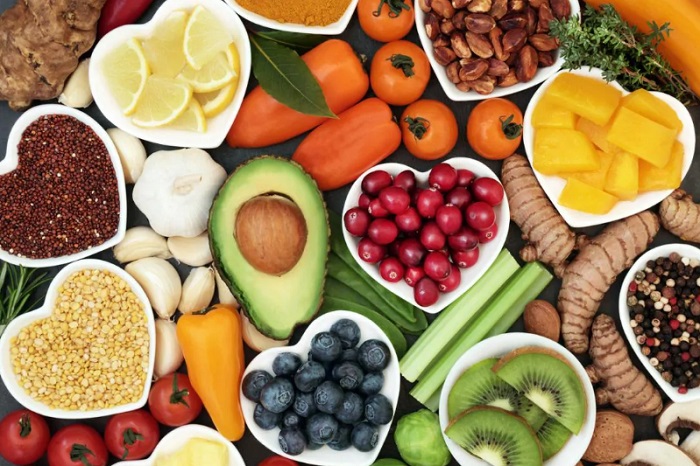Foods that increase fertility
The modern pace of life is extremely demanding: we need to work much, achieve much, and we have no right to fall behind. For this reason, rarely do we have time to take care of our food. The restaurant business presents us so many opportunities to grab a quick meal without being distracted from our everyday life hustle. This definitely increases our efficiency and performance in a short term perspective. But what should we anticipate in the long term? In no way does this nutrition pattern benefit our health. One of the most impacted health aspects is our fertility.
Rarely do we challenge ourselves with a thought about how the pizza I eat today will affect my fertility function in two years or what delay in successful conception will a juicy hamburger I eat every second-day cause. Those are not the questions we contemplate about on an everyday basis, we only start thinking about it, when we face some problems and seek a way to overcome them.
The right diet is essential for both male and female fertility, but unfortunately, there is no perfect receipt that would benefit all people. Many studies are digging into the questions of nutrition and fertility, scientists are striving to find out how the food we eat affects our hormones and reproductive cells, as well as what foods that help conceive. And it does make sense because infertility has become an issue of great importance in the modern world. Every year, thousands of couples face problems with conception and some of them may be explained by the lifestyle patterns they follow with nutrition as a key factor.
So let’s try to dig into the topic of fertility-enhancing foods and lifestyles in more detail.
Healthy diet and lifestyle as a key factor in fertility preservation
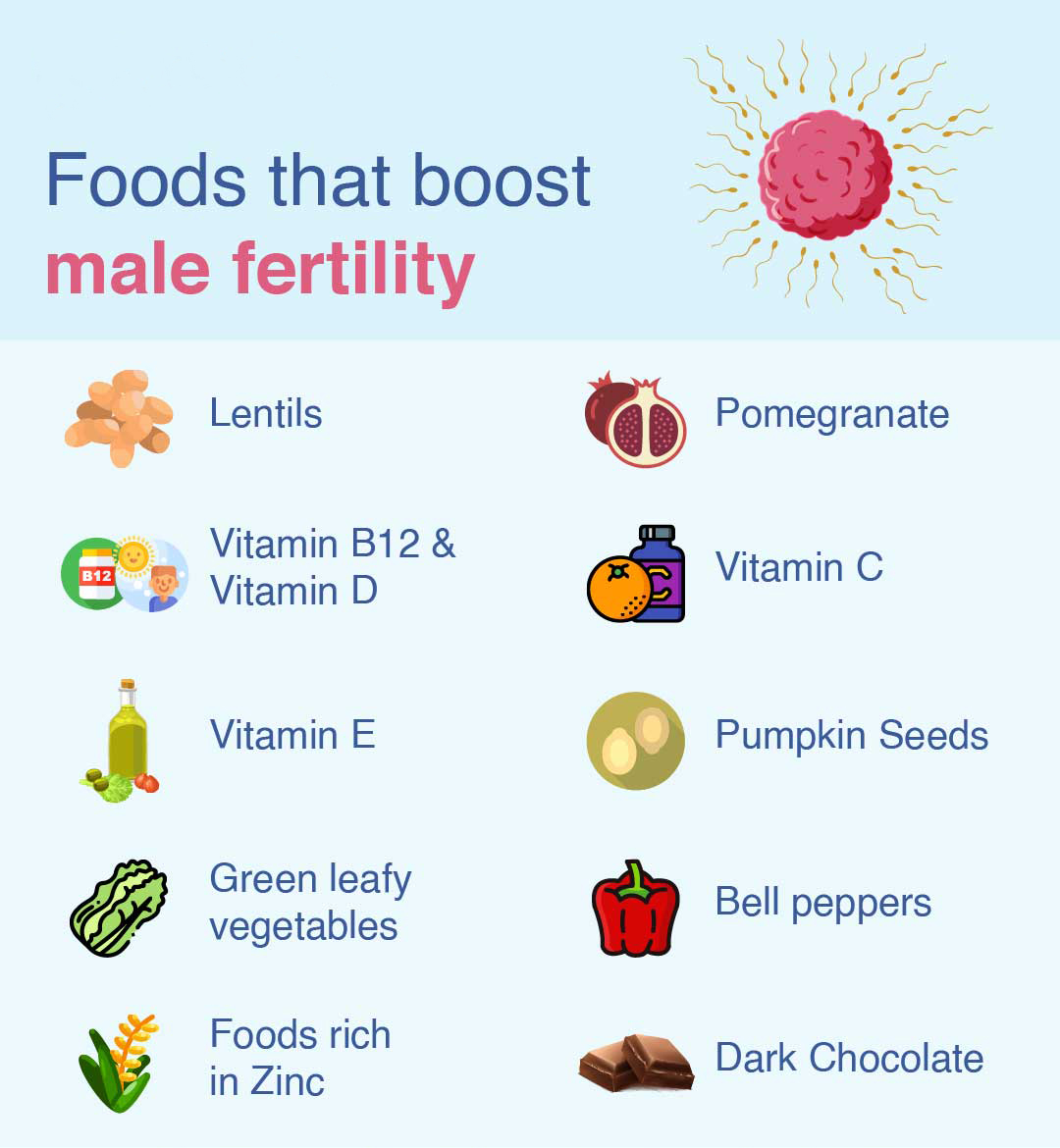
We would want to believe that there are magical foods that will help us to conceive easily and fast, but the reality is a bit disappointing – there is no such thing as a product that will solve all health and fertility issues. There is no magical recipe. Though the good news is that you can significantly improve your reproductive functions eating healthy. What does it even mean to eat “healthy”? It’s not merely about what you need to eat but also about your nutrition patterns and about what is necessary to avoid. So before discussing the products that may benefit your health and food for fertility boosting, it is necessary to analyze your current diet and identify the products that may be detrimental for your health. So what are the main products that negatively impact your fertility?
Carbohydrates: a threat or a friend?
It’s a tricky question, but the answer is pretty simple. There are two types of carbohydrates – refined (white bread, pasta, sweets, etc.) and unrefined (whole grains and seeds). The first ones (fast carbs) are easily broken down by the ferments in our digestive system, and that is why they quickly rise the sugar level in blood. The latter ones (slow carbs) take much longer to break down, and the products are digested slower and sugar is released into our blood gradually over time. Is it even important to understand this complicated concept? It is! Blood glucose (sugar) level is a key factor in our hormone system. A sudden spike in blood sugar levels causes the pancreas to release a huge amount of insulin – a hormone responsible for eliminating the excessive amounts of glucose from the blood. The more sugar gets into the blood at once, the more insulin is released and the quicker it eliminates all the glucose, and we crave for more food again.
This sugar-insulin game is detrimental to fertility because it disrupts the balance of other hormones that regulate the reproductive system. It is believed that hormonal imbalance is one of the main causes of infertility and may lead to fertility reduction. Disrupted insulin function causes the excessive release of testosterone and other related male hormones, alters ovarian response and decreases egg quality. That is why it is essential to understand this mechanism if you are trying to conceive and be particularly cautious about the foods you consume.
For example, the carbohydrates that may be associated with the highest risk of infertility are cold breakfast cereals, white rice, white bread, and potatoes. If you substitute the products high in fast carbs with foods rich in slow carbs like brown rice or dark bread, you may sufficiently improve the hormonal balance in your body and your fertility.
The general philosophy for controlling your insulin level is to choose minimally processed whole grains such as quinoa, wild rice, beans, seeds, brown rice, and buckwheat over anything made from flour, such as bread, or processed into breakfast cereal.
What foods will boost your fertility? Veggies and the “Mediterranean diet”

Almost all vegetables are super-foods for fertility, for they contain all the necessary vitamins and supplements, so it may be a good idea to enrich your diet with this type of food to increase fertility. The “Mediterranean diet” is one of the best variants because it is characterized by a high intake of vegetables, vegetable oil, fish, and legumes, and a lower intake of processed snacks. But since your body does need proteins, it doesn’t work giving up on meat.
Alcohol and caffeine: to drink or not to drink?
It’s hard to imagine a Friday evening out with friends without a glass of wine or bottle of beer. What can be more relaxing after a stressful working week than a chill-out night with drinks? It may not seem to be extraordinary. It’s true, but you should be extremely cautious about the amounts and regularity of your alcohol intake. Levelled alcohol amounts may benefit your health in some way, but heavy alcohol consumption is linked with various health issues. For example, alcohol misuse is associated with poor sperm quality. One study by the University of California suggests that the risk of stillbirth appeared to be more than doubled for men who drank alcohol every day. The same study found that the rate of miscarriages for couples in which men drank alcohol in the month before performing the IVF procedure was increased. What is more, there are some studies that suggest that alcohol intake contributes to the decreased sperm count, motility and fertilization rate.
It is believed that caffeine is detrimental to our health. Some studies suggest that high levels of caffeine intake may reduce your chances of getting pregnant and increase the risk of miscarriage. But devoted coffee lovers should not be too disappointed with this news, because “high levels” means drinking more than five cups of coffee per day. So moderate coffee consumption is unlikely to impact your health and fertility in a negative way. One or two cups of coffee per day will do no harm but don’t forget about the balance.
Action steps to boost your fertility
If you want to boost your fertility, you would want to pay attention to what carbs you consume, minimize the amount of processed food and follow some general rules of healthy nutrition, in particular, maximize vitamins, antioxidants, and healthy fats in your daily diet. Here are some tips on nutrition habits and foods to help your fertility:
- Enrich your diet with non-starchy vegetables loaded with vitamins and minerals, including spinach, broccoli, salad greens, and colourful veggies. Vegetables in-season are a cheap source of a great number of necessary nutrients that may enhance your fertility.
- Increase the amount of healthy fats in your diet, such as olive oil instead of sunflower oil. Nuts and seeds, like almonds, cashews, walnuts, pistachios, pumpkin and sunflower seeds, are believed to be the food that increases fertility.
- Since berries and fruits contain high levels of sugars, you should be careful with their consumption.
- Limit the intake of fast carbohydrates such as sugar, white bread, pasta, potatoes; instead, you may consume slow carbs such as whole grain cereal.
- Avoid processed foods containing trans fats.
- Carefully monitor the amount of caffeine and alcohol you consume. It is not necessary to stop drinking coffee altogether, but it is reasonable to be cautious about it. And don’t forget that tea contains caffeine as well.
Let’s look into the fertility enhancing foods in more details. What should men and women eat to increase their fertility?
Male fertility and diet
Generally, food plays a crucial role in male fertility and the food consumed by a man may affect the conception and reproductive cell quality. Men may want to enrich their diet with those foods to increase male fertility:
- Foods rich in zinc: oysters (highest zinc rate), whole grains, beans, nuts, red meat, and poultry. They are believed to increase testosterone level and sperm quality.
- Vegetables high in vitamin C: broccoli, tomatoes, leafy greens, blackcurrants, lemons and oranges. It positively effects sperm motility and count.
- Fish and seafood, for they are rich in omega-3 and omega-6 fatty acids which benefit the cell membranes that ensure sperm flexibility and movement features. Those are the best foods for fertility boosting both in men and women.
Foods that increase fertility in females
- Legumes are rich with proteins and thus may be considered to be the beneficial food for ovulation stimulation. Plant proteins are healthier than animal proteins and they are also a great source of folic acid, which is a necessary element for conception and proper embryo development.
- Antioxidant-rich foods – berries. Antioxidants protect our body cells from harm caused by potentially dangerous molecules such as free radicals, which may impair DNA structures in reproductive cells. The berries rich in antioxidants include blueberries, raspberries, and strawberries.
- Dairy products like cheese or yogurts contain high levels of calcium and probiotics that may be beneficial for your ovulation and your general health as well. They are also rich in proteins that may improve the regularity of your ovulation cycles.
It is necessary to understand that there is no magic recipe or magic foods for fertility. However, you may consume some types of food to increase your fertility. The best option is to follow a balanced well-rounded diet and cut on fatty and unhealthy foods. If you have faced issues with fertility you may turn to a fertility clinic to consult an expert and get the help and support you need. Many clinics offer fertility consultation services and may provide you with a personalized dietary plan and advice.

Surrogacy in Ukraine, legal aspects
Infertility treatment by using the services of a surrogate mother is now widely applied in countries where surrogacy...

Should I freeze my eggs
Egg freezing is the set of medical procedures aimed at the preservation of a woman`s fertility. It has already...
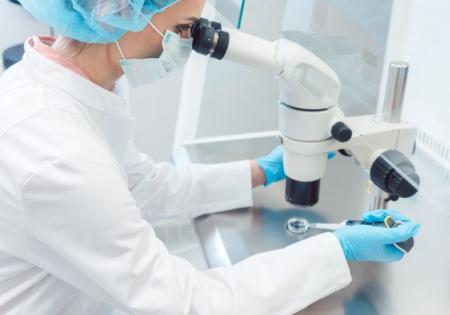
What Is Preimplantation Genetic Diagnosis (PGD)
Modern reproductive technologies have evolved and progressed for the last decades which has given a chance for...

What are Surrogacy Contracts
Surrogacy programs require different documents to be signed. This is done to make all the procedures legal and...

What is Gestational Surrogacy and How it Works
Gestational type of surrogacy is considered to be a relatively new method to treat infertility. The 1st baby was...

How Can I Become a Surrogate Mother
The number of couples who start looking at their surrogacy opportunities in Ukraine increases with every year due...

The Egg Donor Process: What to Expect
Becoming an egg donor is both a thrilling experience and big responsibility for many women. It’s a great...

How To Evaluate a Surrogacy Agency’s Success
The surrogacy process is a challenging and exciting journey for intended parents. This procedure requires a lot...

10 Common Questions About Egg Donation
The process of egg donation raises a lot of questions both from recipients and from donors. This procedure is intended...

Fertility after a miscarriage
Fertility is the ability of the female or male body to conceive and give birth to a child. Woman’s fertility...

Difference between primary and secondary infertility
It is only possible to diagnose infertility or sterility, in the case when at the beneficial circumstances, regular...

Signs of preterm labor
Preterm labor poses a threat to the baby’s life and health; though, it could be prevented, if you know about...

Secondary infertility
Infertility is the disorder of the reproductive system, when for a year or more, the attempts to get pregnant are...

Effect of smoking on fertility
Smoking is one of the most widespread bad habits. We have been told about the harmful effect of nicotine starting...

Intrauterine insemination
Artificial insemination is nothing unusual in the modern world. It has been developing the most active in the last...

Alcohol and fertility
Alcohol addiction is one of the most common problems in the modern world. This problem becomes more and more widespread...

Relationship between stress and infertility
From year to year, scientists find more proves confirming the interconnection between stress, depression-related...

Celebrities who resorted to surrogacy
Surrogacy is one of the assisted reproductive technologies. The surrogate mother carries the baby that isn’t...
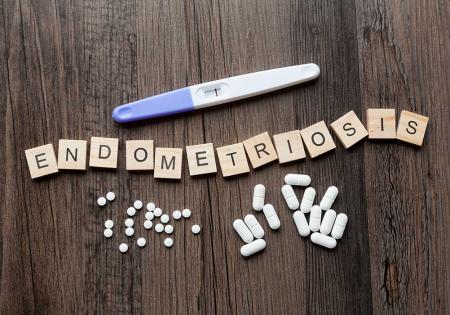
Endometriosis and IVF
Women who refer to a gynecologist because they can’t get conceive for a long time or who want to try IVF...
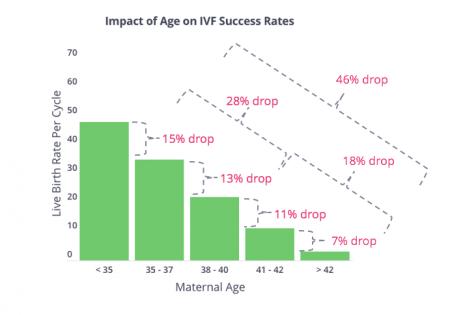
IVF success rates
In vitro fertilization (IVF) is the most efficient and commonly applied type of ART. It is undoubtedly the most...
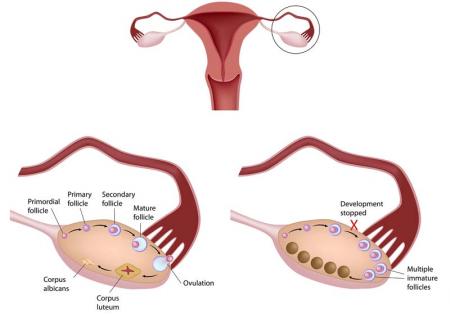
PCOS and IVF
There are many reasons why woman’s eggs may be of poor quality or quantity. Most common causes are associated...
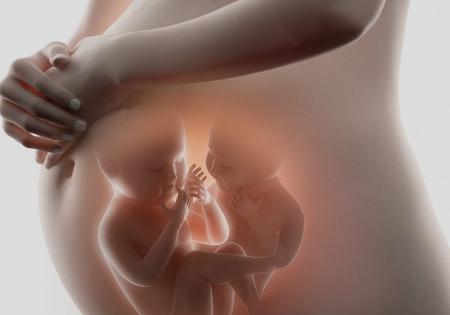
Pregnancy with multiples
Couples planning their parenthood with fertility clinic assistance often inquire about how high their chances are...

What is fertility calculator?
The advance of modern technologies presents a number of opportunities for women to take charge of their fertility....

Male infertility symptoms
The modern pace of life is extremely fast and stressful. We need to keep up with so many things and follow such...
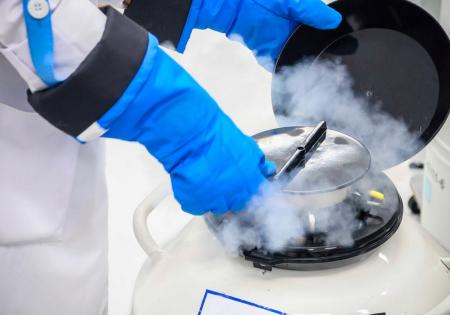
Differences between fresh and vitrified eggs
Many patients who resort for assisted reproduction technologies, like IVF, surrogacy or PGD are often baffled with...

Does age matter for fertility?
How does our age affect our fertility? Age is a crucial factor affecting male and female fertility. The modern...

Egg donation in Ukraine
Egg donation in Ukraine is a trending reproductive service that is becoming more and more popular. For some patients...

Motherhood after 40
The modern world provides women with so many great opportunities but at the same time, it may cause a lot of disappointments....

Why do people choose pregnancy in Ukraine
The modern world presents us with so many great opportunities, the development of the state-of-art technologies...
0817144241_s.jpg)
What is medical tourism?
The globalization of the modern world presents us with a wide range of opportunities for work, recreation,...

Poor ovarian reserve and IVF
Women who plan to get pregnant or have faced some difficulties with fertility usually refer to reproductive clinics...
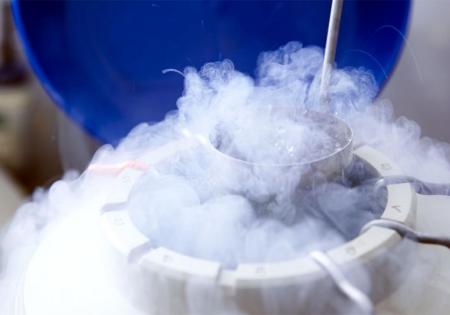
Egg freezing
Egg freezing, also known as the oocyte preservation is a method of woman’s fertility preservation that allows...

How to choose the perfect donor for you
Here are some tips how to choose the perfect donor for you: It goes without saying that your potential...

Agency’s clients need a professional legal support
Anastasia Herman law office provides the full range of effective assistance within Surrogacy, Family and Fertility...
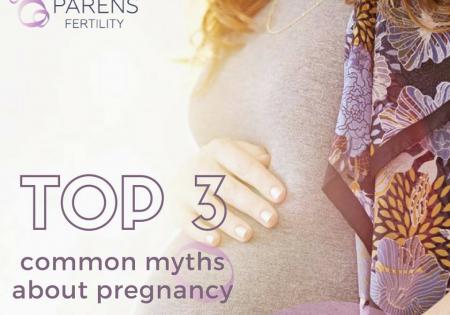
TOP 3 common myths about pregnancy
The mother’s beauty According to a myth, girls steal away their mothers’ beauty. Of course, the truth...

Getting ready for your first visit to a fertility clinic
Take some time to think over and prepare the following information before your visit: List any medications,...
_s.png)
Konsultacja specjalisty z niepłodności Kraków
Jak od dawna starasz się zostać rodzicem, ale tak i nie uzyskałeś dwie upragnione kreski na teście? Ilu lekarzy...
Contact US
Complete the form below to start your journey right now
